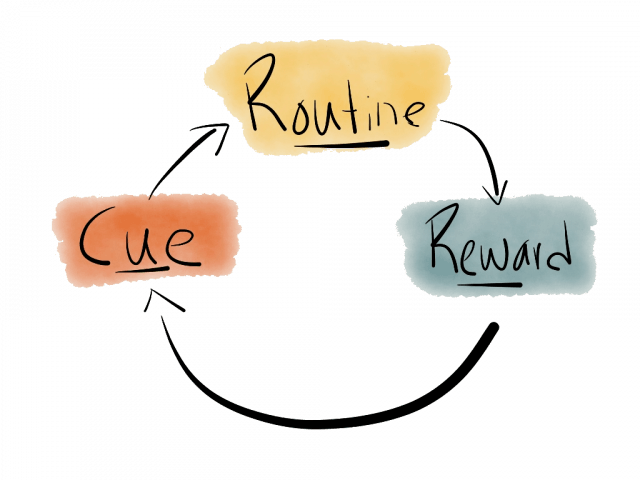A Potential Issue With Immersive Fantasy Games

I’ve been a role-player since junior high school, and I have been a reader of non-fiction long before that. I have a group of friends from junior high that still game (role-playing), and I noticed over the last couple of years that there was something very negative about it for me. I haven’t been able to capture it until just now.
Basically, it seems possible to become very depressed while doing a certain type of immersive gaming, such as role-playing or World of Warcraft, etc. I have seen it in others and on one occasion a couple of years ago it happened to me for approximately two days. It had nothing to do with events in the game and everything to do with the game being immersive in a certain way.
I realized today that the reason immersive games can be depressing for me is because they split my goal and success-building resources into two worlds — on one side I’m trying to create a vast body of literature and science knowledge and capture it here on my website in well-articulated arguments and essays, and on the other side I’m trying to achieve a number of complex goals within whatever game I’m playing.

And the games can be phenomenally awesome. They are every bit as intricate and nuanced as reality, but with more elements in play because it’s fantasy and has fewer boundaries. So there are relationships, politics, striving to become more powerful, etc. These things take time to plan and contemplate, and once you start working towards goals in that world and expending effort to do so, a switch seems to click in the brain. It’s like it re-prioritizes that world as the primary context for achievement. So after spending a few days or weeks (a number of multi-hour sessions on weekends usually) in a particularly good game, it becomes extremely unpleasant to think about becoming successful in the real world.
My guess is that the brain must have difficulty building resources, power, and respect in two completely different contexts at the same time. So when you’re gaming deeply, that is the reality that your brain cares about becoming significant in, and any other "reality" is an affront to it.
I’ve noticed this behavior in my gaming friends repeatedly over the years, but could not articulate the phenomenon until just now. Every conversation they wanted to have was about gaming (with some exceptions such as movies, cuisine, comics, reading, history, etc.), but almost forbidden was any conversation about how to improve our real lives, i.e. getting more education, getting a better job, getting more organized, or working on non-game projects. Everything was about the game we were playing, and it was considered basically rude to talk about growing outside of that context.
The reason for this seems to be explained by this model: their value system existed within the game context, so talking about things outside of the game world was disjointing to them. Perhaps my problem all along has been not realizing how single-focused the brain wants to be; trying to maintain two completely separate value systems just doesn’t work.
Don’t misunderstand: this isn’t simply two different activities we’re talking about. Lots of people have a work life and a play life. Boating, golf, camping, hunting, etc.; most successful people have hobbies that they work to get good at. These aren’t the same because they exist in the real world and have significant crossover with their general advancement efforts. You can talk to a potential mate or a potential boss about your passion for mountain climbing much easier than you can about how well you’re doing in a role-playing game or in a WoW guild.

But what about reading non-fiction? Isn’t that fantasy as well? Isn’t that competing with reality? It’s actually not the same. This is where my revelation yields fruit: the conflict comes in building within an alternative context, not simply consuming within it. So, reading Game of Thrones and Hunger Games and Harry Potter doesn’t produce discord in one nearly as much as immersive gaming because in gaming you’re spending creative energy to become powerful within a context.
That’s the key — the effort to accomplish goals, achieve status, and become successful. This model says that once you start trying to do that within an alternative setting it produces major discord in the brain to try to do it within reality as well. It’s as if humans can only maintain one major context at a time for their personal goals and success ecosystem, and the brain will do what it can to isolate other such models when they present themselves.
So what’s the actionable takeaway from this if you’re experiencing the same effect as I was? Simple: decide which context is more important to you and embrace it. Don’t try to maintain two at a time, and frequently revisit which is the right one for you during a given period, e.g. every six months.
I won’t be giving up gaming myself, but I’ll treat it differently. While I’m pushing towards real-world goals I will play short-term games that don’t require long-term goal-seeking. And when I decide to go hardcore into a game for a few months I’ll back off my pursuit of my real-world efforts. Basically, I’ll be careful to stay in one or the other.
December 5, 2011 — I’ve modified some of the language here as some commenters have said it sounded too much like the result of research as opposed to anecdote, which I thought it clearly was.
Notes
This is why WoW players drop out of the real world while they’re fully immersed. When building a character, gearing up, and participating in a guild to achieve goals, all other priorities fade — including real life. It’s the same for any highly-immersive fantasy setting where there is a goal and achievement framework that does not cross over into the real world.